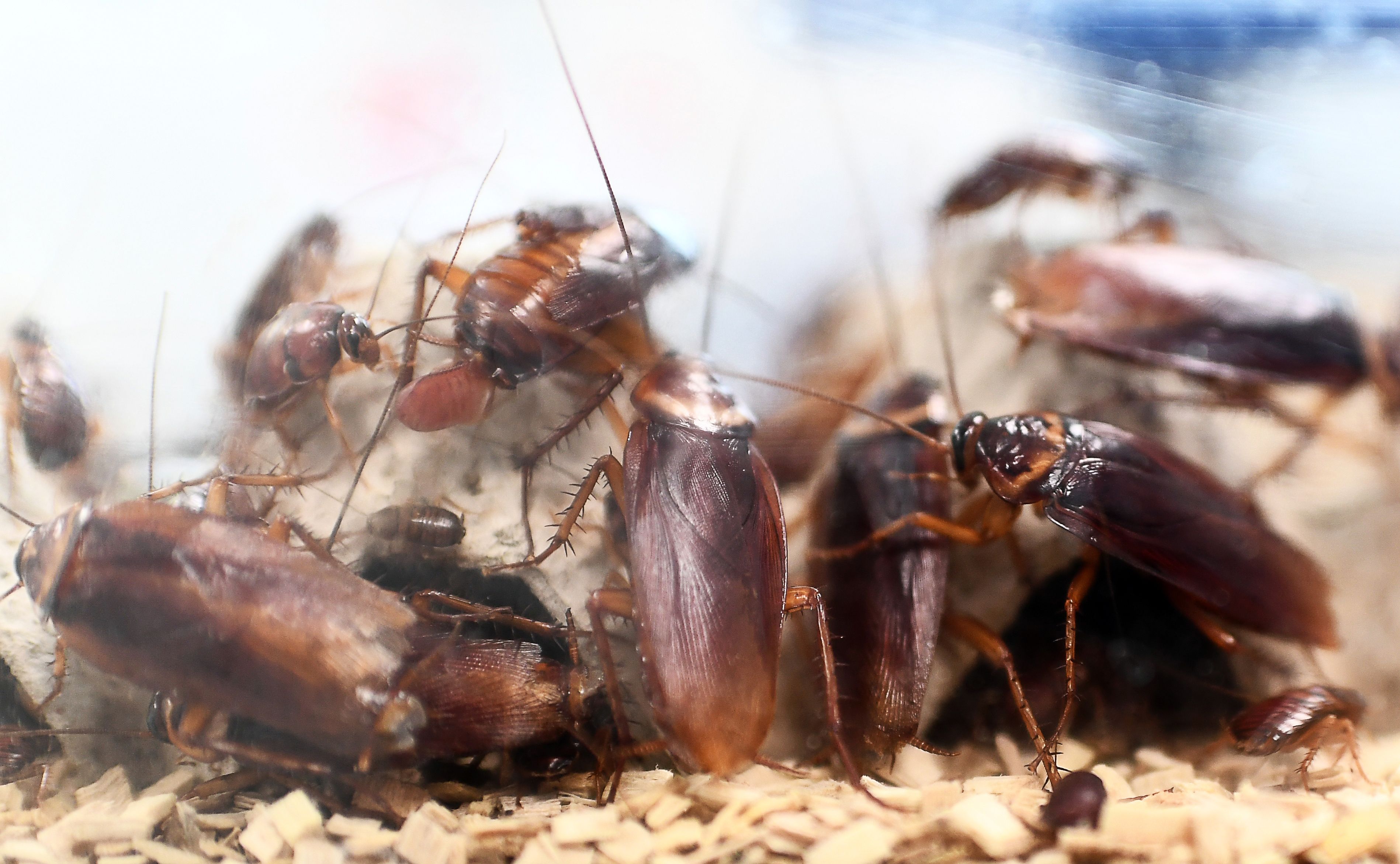
Marseille has inaugurated a research centre on infectious diseases, complete with insect breeding, a bacteria bank and hospital rooms for highly infectious patients. This project, launched in 2011, required 100 million euros of investment and aims at fighting infectious diseases, the leading cause of death in the world, killing 17 million people per year. / AFP PHOTO / ANNE-CHRISTINE POUJOULAT (Photo credit should read ANNE-CHRISTINE POUJOULAT/AFP/Getty Images)
*According to a Purdue University study of common German species of roaches, the pesky insects have developed an immunity to toxins with which they haven’t yet been in contact.
The study was published on Live Science, and notes the evolution of the German cockroach, which develops an immunity to new poisons in as quickly as one generation of offspring, the report states.
“We didn’t have a clue that something like that could happen this fast,” study co-author Michael Scharf said. “Cockroaches developing resistance to multiple classes of insecticides at once will make controlling these pests almost impossible with chemicals alone.”
OTHER NEWS YOU MIGHT HAVE MISSED: WE REMEMBER: Spike Lee Announces Death of Actor Paul Benjamin
Prof. Michael E. Scharf said he and his team could watch the roaches develop resistances “in real time.”
*Faints*https://t.co/KF2vrIlEuM
— USA TODAY (@USATODAY) July 3, 2019
via Complex:
The study was conducted across numerous apartment buildings across the United States over the course of six months. At the end of this time period, the researchers found that after using three different types of insecticides the population of cockroaches somehow remained stable, or some cases even increased.
The German cockroach is found across the world and considered extremely dangerous because of the bacteria they carry.
So, how do we stop them from spreading bacteria and disease?
Researchers say traps and vacuums will be required moving forward, as chemicals are proving to be useless, the report suggests.
“Some of these methods are more expensive than using only insecticides, but if those insecticides aren’t going to control or eliminate a population, you’re just throwing money away,” Scharf added.
We Publish News 24/7. Don’t Miss A Story. Click HERE to SUBSCRIBE to Our Newsletter Now!





